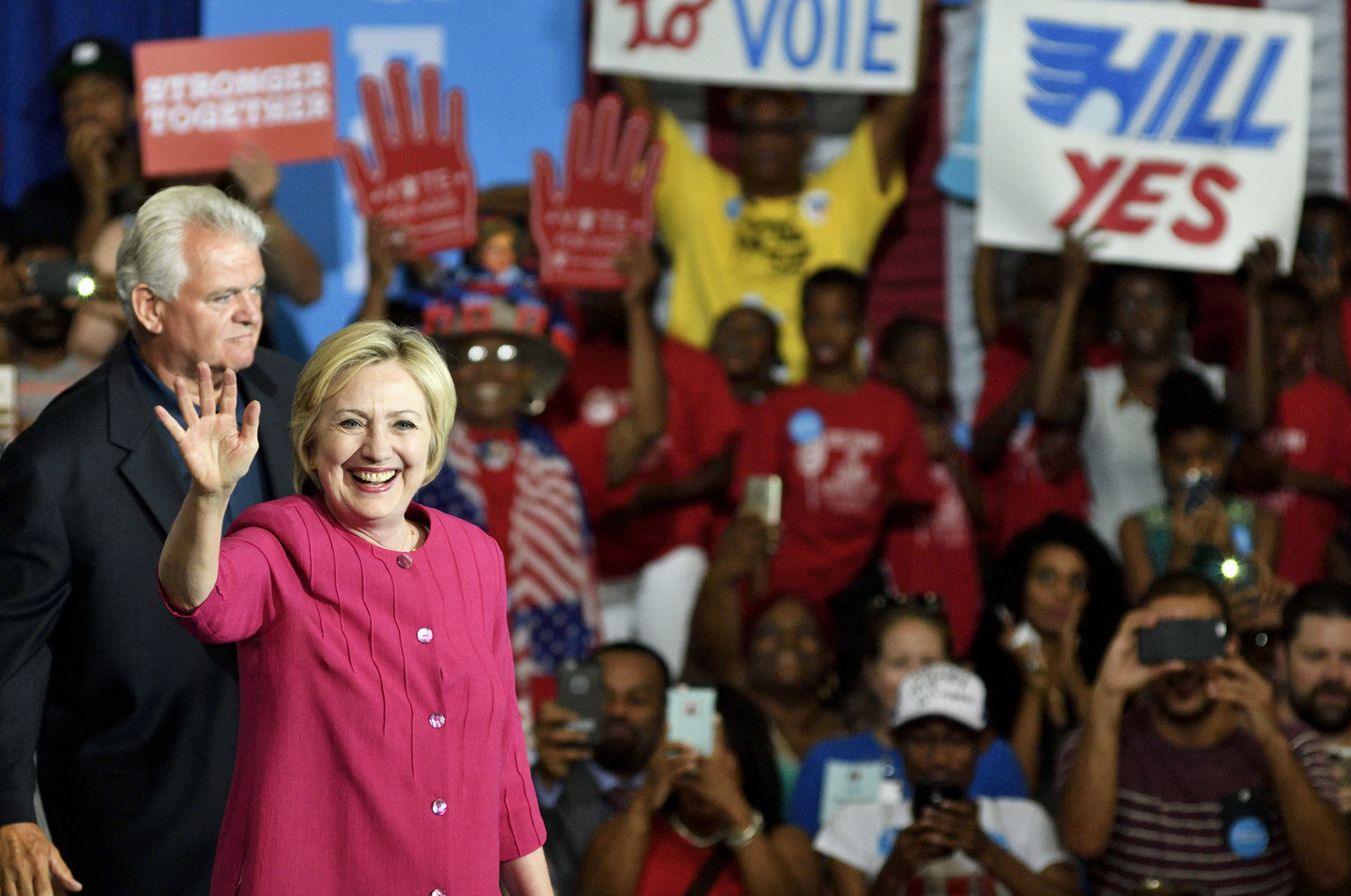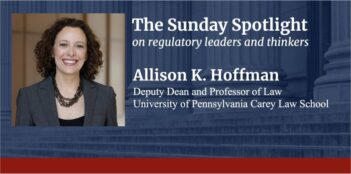
The Democratic candidate for President shares her platform and voter mobilization goals.
With the next presidential election only 41 days away, both the Democratic and Republican campaigns are focused on Pennsylvania as a key battleground state.
Former Secretary of State and Democratic presidential nominee, Hillary Clinton, visited West Philadelphia in August to rally local citizens around her campaign’s goal of registering 3 million new voters for the 2016 elections. Clinton also took the opportunity to highlight the key issues that she would work on if elected.
A local Philadelphia hip-hop artist, Freeway, helped organize the registration drive and post-rally canvassing in West Philadelphia High School’s gymnasium. Originally a prominent supporter of Senator Bernie Sanders (D-Vt)—Clinton’s main opponent in the Democratic primary—Freeway shared his message to those who are thinking about sitting out the election this year: “I tell those people, ‘You need to be in a room to make a change. If you’re not participating, you’re just on the sidelines talking trash…you need to actually be registered and vote to make a change.’”
By the time that Clinton took the stage, the crowd was chanting her name, their uproarious cheers generating a palpable energy in the crowded and heated gym. Speaking from a podium, Clinton related election season to the Summer Olympics in Rio de Janeiro, Brazil. She focused on the Olympians’ courage to compete and implored the crowd to duplicate that ambition in their civic participation come fall. “We don’t want you on the sidelines in November,” she told the audience.
Clinton acknowledged people often poke fun at her for talking about all of her “plans.” To laughter from the crowd, she explained that she discusses her policy agenda so frequently to inform voters and enable them to hold her accountable. Clinton spent the majority of her speech describing how—if elected President—she intends to address urgent issues facing our country.
Clinton first spoke about creating more jobs in infrastructure and manufacturing. Noting the need to improve everything from roads to water systems, Clinton also said she aspires to transform the United States into “the 21st century clean energy superpower,” alluding to increasing job opportunities in clean and renewable technologies. She acknowledged the continuing need to support the youth who have been left out of the job market, as well as older generations who require new skills to be competitive employment candidates. Clinton stressed her plans to make community college free, expand access to technical education, ease student debt, and ensure universal prekindergarten.
Clinton then emphasized policy differences between her platform and that of her opponent, Republican nominee, Donald Trump. Clinton denounced both Trump’s negative rhetoric and recent promises to provide more tax breaks for the wealthy, such as his proposed elimination of a real estate tax. Clinton estimated that what she termed the “Trump tax-loophole” would likely save four billion dollars for Trump and his family. She shared several plans she had to invest four billion dollars—including hiring public school teachers, doubling healthcare for veterans, and investing in small businesses in Philadelphia.
Trump, who spent the same August week campaigning in Youngstown, Ohio, has defended his proposed tax code overhaul by asserting that the plan will lower taxes for middle-income Americans and motivate businesses currently holding money abroad to reinvest it in the United States.
The Tax Foundation, a think-tank based in Washington, D.C. that is sometimes described as conservative-leaning, has analyzed the candidates’ tax proposals. The Tax Foundation examination concluded that Trump’s tax reductions would increase income for all taxpayers by about one percent; for the very top income earners, the Foundation projected after-tax income would increase between 10 and 16 percent under Trump’s plan. In a January analysis of Clinton’s tax plans, the Foundation predicted her policies would reduce take-home pay for the top 1 percent of income earners by about 2 percent and would reduce after-tax income for all taxpayers by about 1 percent.
Back in West Philadelphia, Clinton also addressed bolstering the Affordable Care Act, lowering the cost of health insurance premiums, and tackling the high cost of prescription drugs. To emphatic applause in the gym, she expressed her commitment to focusing on providing aid to those with mental health and addiction problems.
Perhaps the loudest ovation of the rally came when Clinton stated: “I am going to take on the gun lobby to try to save lives here in Philadelphia and across Pennsylvania.” She said that rather than rounding up people’s guns, she was committed to implementing comprehensive background checks for would-be gun buyers, specifically tightening checks around firearms purchased at gun shows and online. She also spoke in favor of legislation that would prohibit weapons purchases by individuals in the Federal Bureau of Investigation’s Terrorist Screening Database, which tracks people known or suspected to be involved in terrorist activities. In June, the U.S. Senate rejected a legislative proposal sponsored by California Senator Dianne Feinstein that would have allowed the U.S. Attorney General to restrict access to firearms and explosives for people known or suspected to be involved in terrorist activities.
To ongoing cheers, Clinton closed her speech by saying that the efforts to register voters were not simply to win an election, but ultimately to build a large base of voters who would work with her to achieve long-term policy goals.
After the rally, Pennsylvania State Representative Vanessa Lowery Brown, a Democrat serving the 190th Legislative District and the president of the Pennsylvania Black Caucus, spoke with The Regulatory Review. Brown said that the most pressing issues to constituents in her district include gun control, jobs, and opportunities. “As a state representative, having someone with the ideology of Hillary makes my job easier to serve the people on the ground who need our help.”
When asked whether she believes that the voter mobilization efforts will have an effect, she replied, “This community is a hidden, secret weapon. And when we activate the people in this community, those numbers come out and we win Pennsylvania.”
Patricia Burton, a West Philadelphia native, supported Clinton during the 2008 campaign and was one of the exuberant participants standing in the crowd. When The Regulatory Review asked how she feels about the upcoming election, she smiled and replied, “Victorious.”
October 11th, 2016 marks the voter registration deadline in Pennsylvania.



